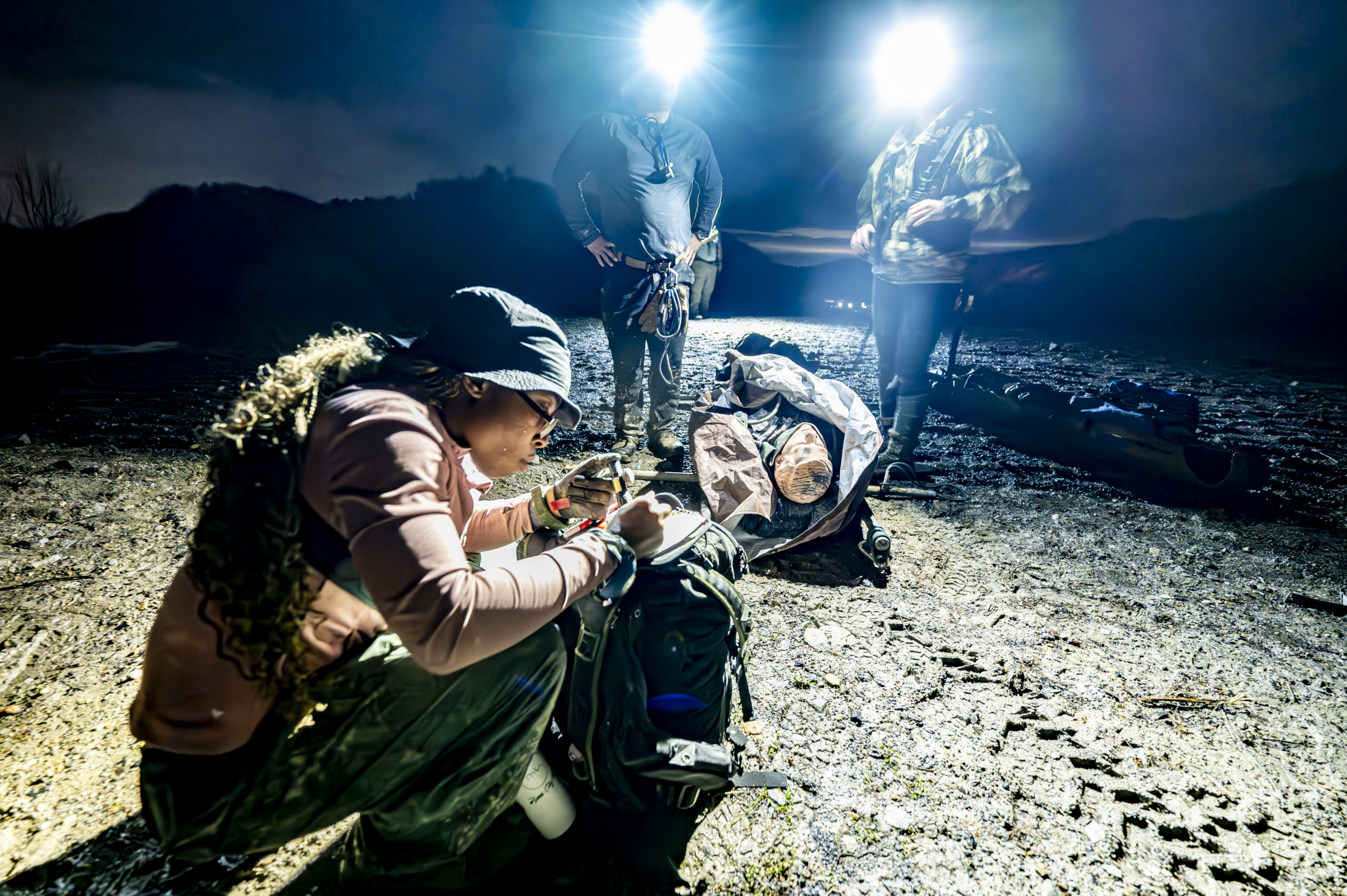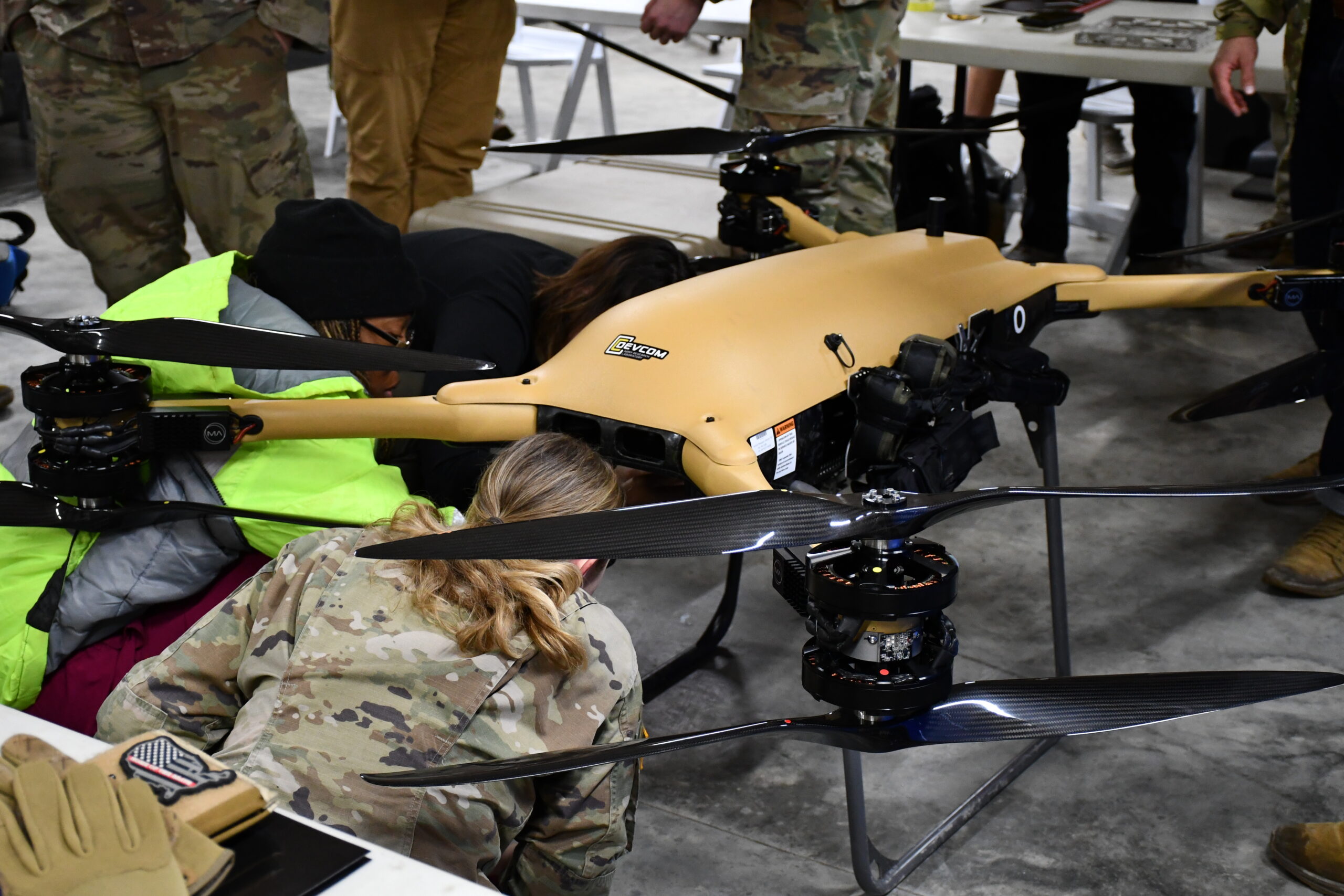Students earn wilderness medicine accreditation at CMI2 facility

Clay, WV – Military and civilian emergency medical technicians (EMTs) recently got hands-on, real-world experience in the most rugged practice of austere medicine available in West Virginia. Participants completed a week-long recertification in Wilderness Emergency Medical Technicians (WEMTs) Basic Recertification course at the Civil-Military Innovation Institute’s (CMI2) Adaptive Experimentation Facility (AEF) in Clay County.
The five-day program focuses on emergency care when separated from definitive care by distance, time, or circumstance. The CMI2 WEMT Basic Recertification is an alternative to the standardized EMT refresher course available in West Virginia through the West Virginia Office of Emergency Medical Services (WVOEMS).
“We noticed a lack in wilderness medicine training on the East Coast, and that means most first responders and emergency physicians would have to travel to the West Coast to take a course like this,” said Walter Hatfield, vice president of experimentation and training for CMI2. “Since there was no such training program, our team worked with the WVOEMS to create a license course as an EMT recertification, which we would create and host here at the AEF.”
The wilderness medicine course attendees included 19 Soldiers and civilians, who stayed onsite at CMI2’s AEF for the duration of the exercise. Participants included personnel from the U.S. Central Command (USCENTCOM), U.S. Army Central (USARCENT), XVIII Airborne Corps, 44th Medical Brigade (Fort Liberty), West Virginia Army National Guard, Medical Evacuation Concepts & Capabilities Division (MECCD), and Medical Capability Development Integration Directorate (MED CDID), both of Army Futures Command (AFC).
“As a veteran and as an EMT, having the real-world experience really trains your mind to get into critical thinking through a process where you’re not always going to have everything available right there,” Hatfield said. “You may have to makeshift a splint and use your belt or boot laces to get your patient to the next level of care. This incredible environment allows us to create a realistic, hands-on experience outside the classroom but in a controlled learning setting.”

In addition to those individuals seeking the WEMT recertification, five Soldiers were onsite to be certified for operating the Tactical Resupply Vehicle (TRV-150). A U.S. Army Combat Capabilities Development Command (DEVCOM) Army Research Laboratory (ARL) technology, the TRV-150 is an autonomous unmanned aircraft system (UAS) capable of carrying up to 150 pounds of payload designed to autonomously resupply small units over the last tactical mile in austere environments.


The final capstone exercise included a CMI2 “Driving Innovation in Realistic Training (DIRT) Days” event, including integrating technology through experimentation. Specifically, the WEMT students were tasked to complete a rescue mission, with the support of the TRV-150 delivering necessary medical supplies to support the patient. This allowed students to work an incident from the staging site to recovery.
“The opportunity to combine our inaugural Wilderness Med recertification and one of our highly successful DIRT Days events is due to the environment here, which allows us to create ideal conditions for an all-hazards experimentation and training exercise that is wanted by our first responders and military medics,” Hatfield said. “The success of this inaugural wilderness med event confirmed the need throughout the mid-Atlantic region, and our next event in April immediately reached student capacity.”
CMI2 executed the Wilderness Medicine DIRT Days event with the DEVCOM ARL. Other DIRT Days industry partners included Saab and Survice Engineering Company.
About the cover image: Military and civilian EMTs participate in hands-on learning exercises during the week-long recertification in the Wilderness Emergency Medical Technicians Basic Recertification course at CMI2’s Adaptive Experimentation Facility (AEF) in Clay County, West Virginia. (U.S. Army National Guard photo by Edwin L. Wriston)
ABOUT CMI2
CMI2, the Civil-Military Innovation Institute, bridges the gaps in defense innovation, creating functional solutions to support the warfighter with immediate impact and effect. The CMI2 Adaptive Experimentation Facility (AEF) in Clay County, West Virginia, is a rugged, austere facility offering a challenging and combat-realistic facility for military and first-responder users seeking a multi-domain environment for research and development for military technology.



